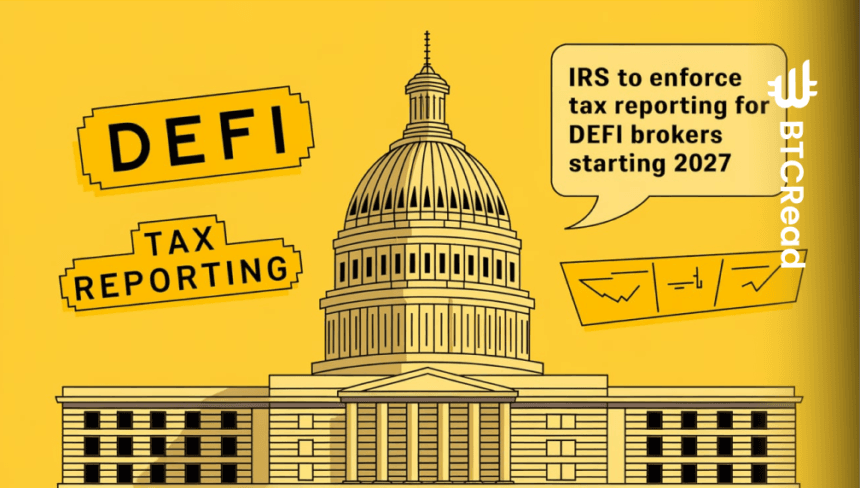The U.S. Internal Revenue Service (IRS) has introduced the final regulations for DeFi brokers. Starting Jan. 1, 2027, these brokers must report gross proceeds from digital asset transactions.
They also must report customers’ transaction data, like names and addresses, on Form 1099. Most of these rules have targeted the DeFi trading platforms. Individual taxpayers may not feel the full weight of this, but users of certain DeFi services will.
This past week, the IRS specified that all DeFi brokers, including those that operate similarly to a securities broker, must also follow tax reporting requirements, even though the platforms essentially give users access to different on-chain protocols. In more general terms, this translates into front-end service providers’ receiving treatment as brokers.
The decentralized protocols themselves, however, are not covered. According to Section 6045 of the tax code, brokers are responsible for collecting customer information, calculating gains and losses, and reporting the data to the IRS.
DeFi structure: Interface, application, and settlement layers
This is why clients receive a Form 1099-B when using on-line brokerage houses such as Robinhood or Charles Schwab. Last year, the IRS implemented these regulations upon the crypto world through custodial or CeFi brokerages but has now taken this to a whole new level to include DeFi and create a multi-layer structure therein: interface, application, and settlement.
The IRS will focus on the interface layer: the layer through which users of the service access participants in DeFi. At this layer, websites, wallets, and trading extensions operate. In other words, only front-end services will be classified as brokers under the new rules.
The IRS will focus on the interface layer, where users interact with DeFi participants. This layer includes websites, wallets, and trading extensions. Under the new rules, only these front-end services will be considered brokers. While the application layer executes orders and the settlement layer records transactions on the blockchain, neither is directly affected.
Customers will likely need to share their KYC information and submit tax forms for proceeds, just like they do with CeFi exchanges. They still need to use crypto tax software to track the actual basis.







